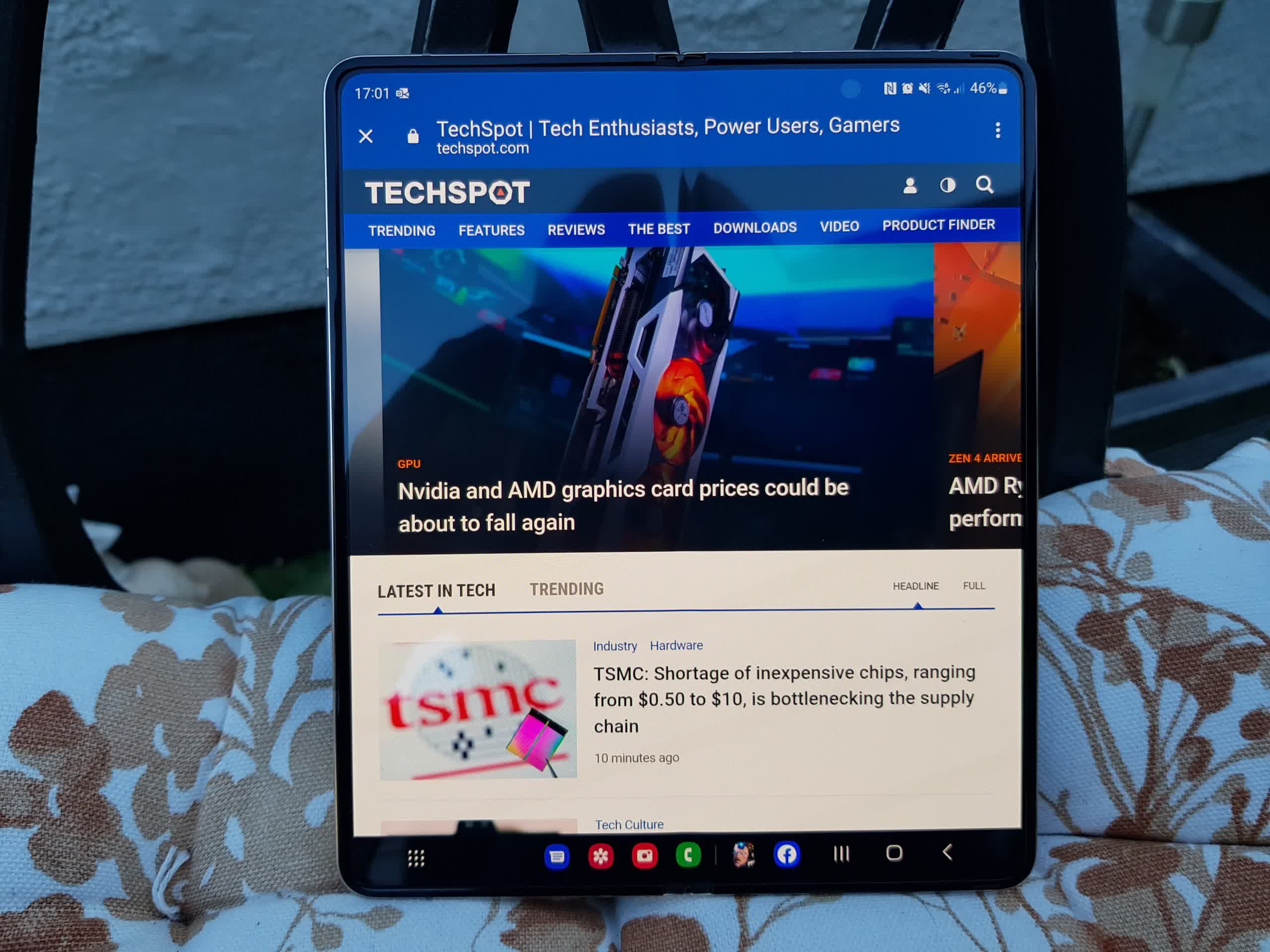What just happened? Samsung's quarterly earnings guidance has illustrated the impact of the global economic downturn and weakening consumer demand, with the Korean giant facing its lowest operating profits in eight years. The situation isn't expected to improve anytime soon, either; analysts believe profits will shrink again in the current quarter.
Samsung's broad portfolio had seen it weather global industry crises in the past, including the chip shortage in 2021 when its earnings reached a new record. But according to preliminary estimates, operating profit for the October to December quarter fell 69% year-on-year from 13.87 trillion Korean won (around $10.9 billion) to 4.3 trillion Korean won (around $3.4 billion), marking the company's smallest quarterly profit since the third quarter of 2014.
Samsung's semiconductor business has long been responsible for most of the company's revenue and profits. But the fall in demand for DRAM and NAND chips has resulted falling contract prices and oversupply. Global DRAM revenue is down nearly 30%, the biggest decline since the 2008 financial crisis, and rival memory makers SK Hynix, Kioxia, and Micron have all announced plans to reduce production and capital expenditure this year.

Smartphones, Samsung's other big earner, is also suffering. IDC data had Samsung leading the market with 64 million handsets shipped in the third quarter, but that was still down 7.8% YoY. With inflation and the cost of living continuing to rise, along with more companies laying off record numbers of staff, consumers are less willing to make big purchases on non-essentials such as tech devices.
"Amid continued external uncertainties, including a potential global economic downturn, overall earnings decreased sharply quarter on quarter as we saw a significant drop in the memory business results due to lackluster demand and weaker sales of smartphones," Samsung said in a statement.
Samsung and other big chip makers are also dealing with the escalating semiconductor war taking place between the US and China. US sanctions introduced late last year restrict shipments of American-made electronics or other items that China could use to create chipmaking tools or equipment. They also prevent non-Chinese companies in other countries from using American equipment to service Chinese customers unless granted a license by the US. TSMC, Samsung, and SK Hynix have all been granted one-year licenses that will allow them to maintain or expand their Chinese factories, but fears remain that the US could introduce tighter restrictions
